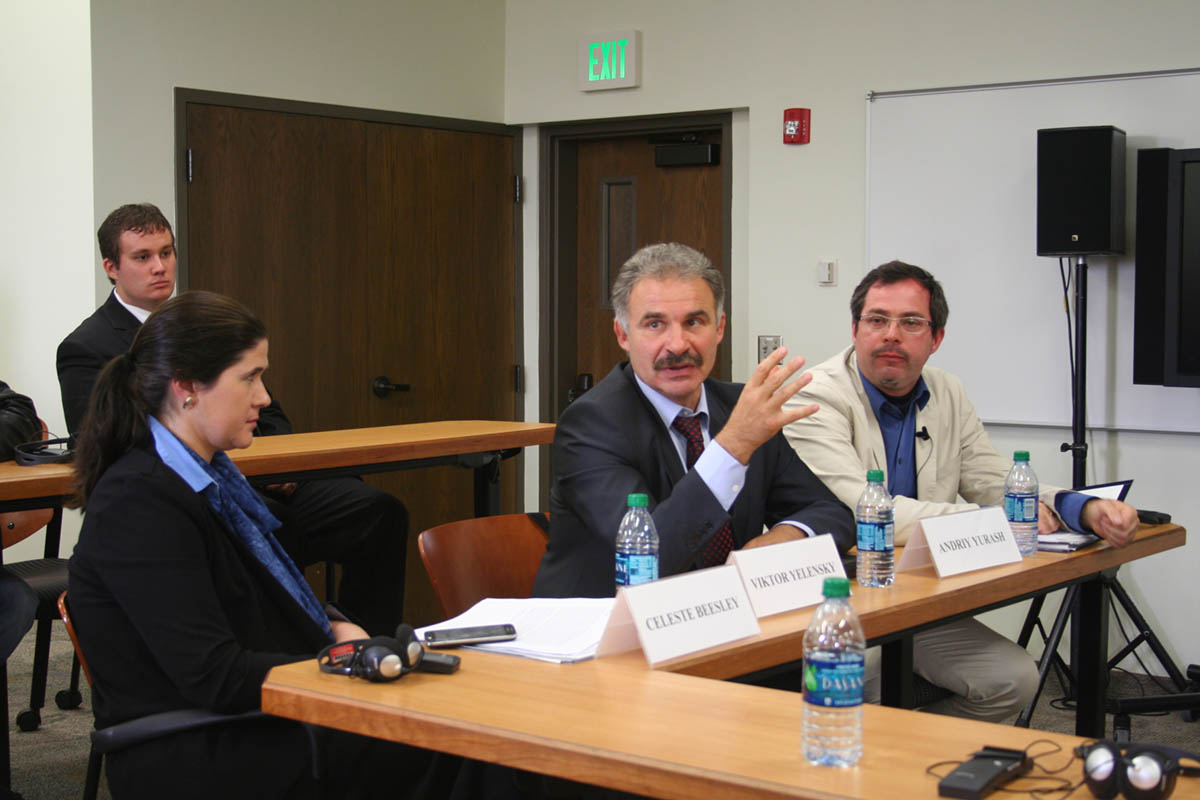Symposium 2015: Ukraine

Reported by Blythe Shupe
Moderated by Celeste Beesley, Assistant Professor in the Department of Political Science at Brigham Young University, the panelists for this session were Viktor Yelensky, Head of the Subcommittee for Freedom of Conscience, Parliament of Ukraine; and Andriy Yurash, Director, Department for Religious Affairs and Nationalities, Ministry of Culture, Ukraine.
Viktor Yelensky, Head of the Subcommittee for Freedom of Conscience, Parliament of Ukraine, opened the session. He provided statistics on various post-Communist countries showing the government involvement in religion in those states. According to Mr. Yelensky, “Pluralism is the main distinguishing feature of the Ukrainian religious landscape and key for understanding the essence of socio-religious processes”. He spoke of competition between the largest churches but stated that Ukrainian society as a whole is tolerant toward different religions and beliefs. A 2014 poll showed that 74% of the population felt that any religion that proclaims ideals of virtue, love, and mercy, and did not endanger others had the right to exist.
Mr. Yelensky looked at the developments of the last two years in the Ukraine including situations where religious leaders have stood up for civil rights. He cited cases of violation of religious freedoms in the Crimea since the Russian occupation, many of which have been reported to the European Court of Human Rights. He also outlined reforms that have been adopted within the Ukraine to protect religious freedom.
Andriy Yurash, Director, Department for Religious Affairs and Nationalities, Ministry of Culture, talked of the evolution of religious freedom in the Ukraine over the last 25 years and the concerns over the developments of the last two years. He compared the current situation to the early 1990’s when there were multiple religious conflicts, the majority of which were resolved with law and tolerance. It is important, he stated, to understand the role of religion in violence and to find forms of cooperation to prevent that violence. He believes that the Ukrainian state will try to maintain the same level of tolerance and will continue to work to implement protections for religious freedom.